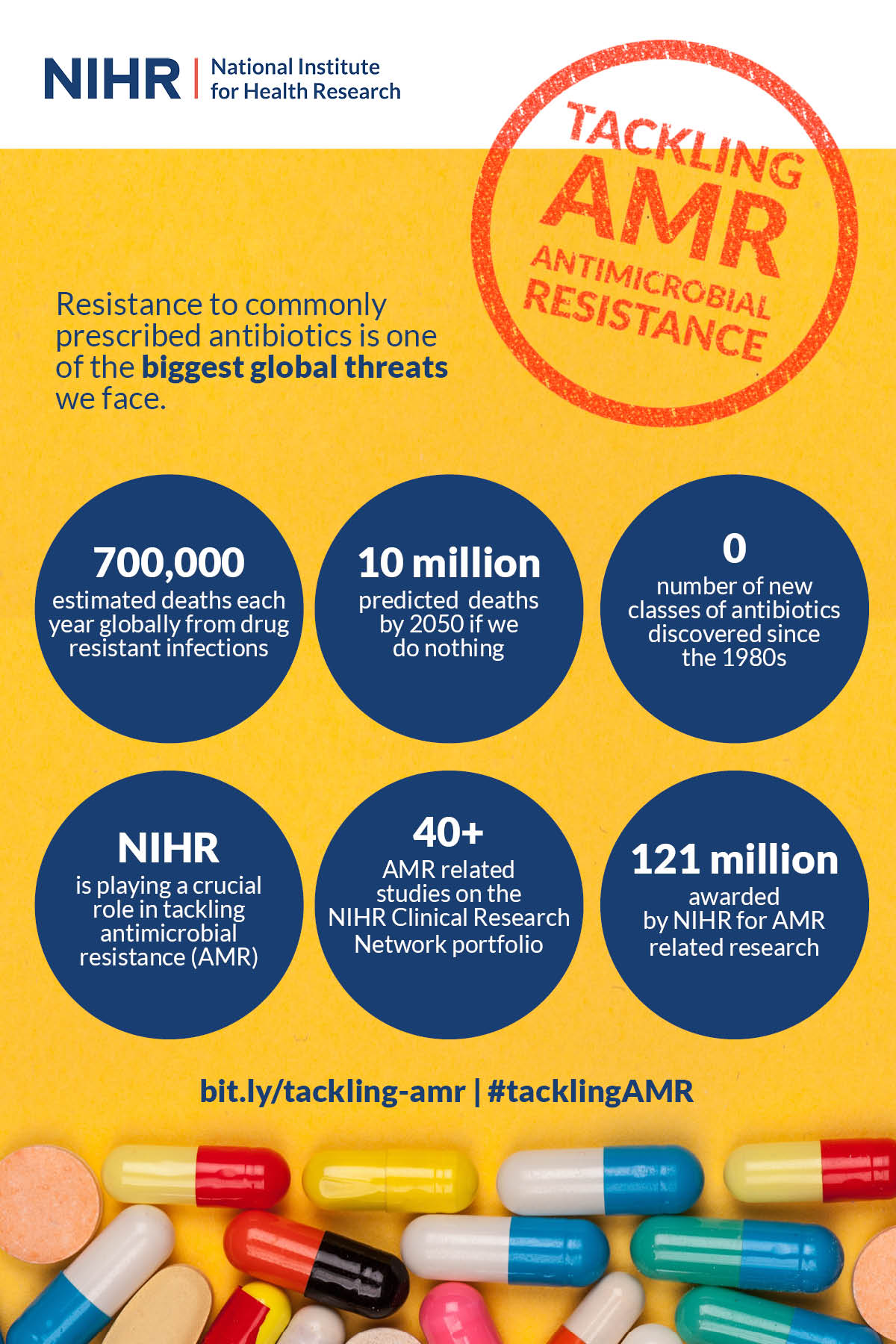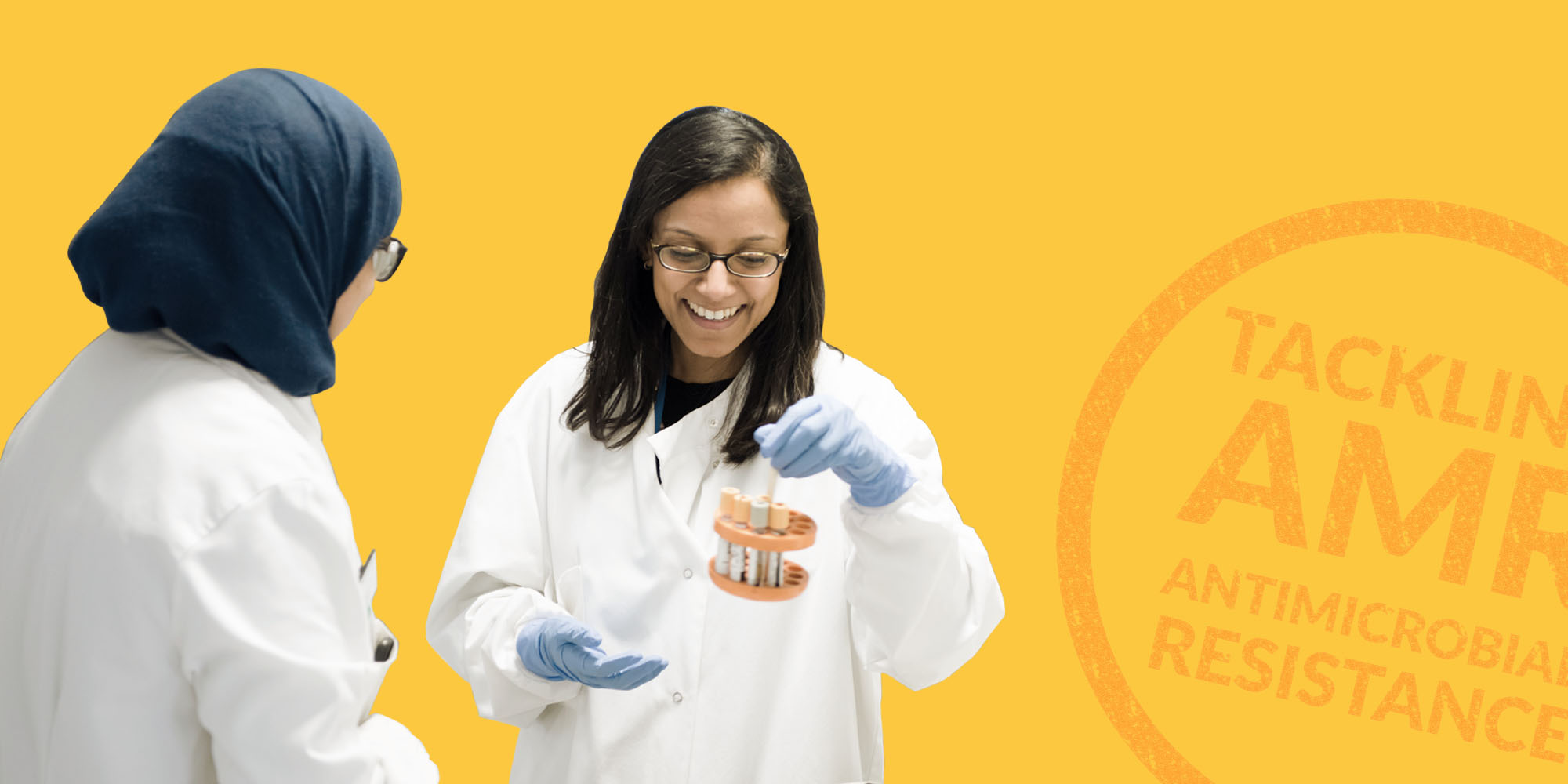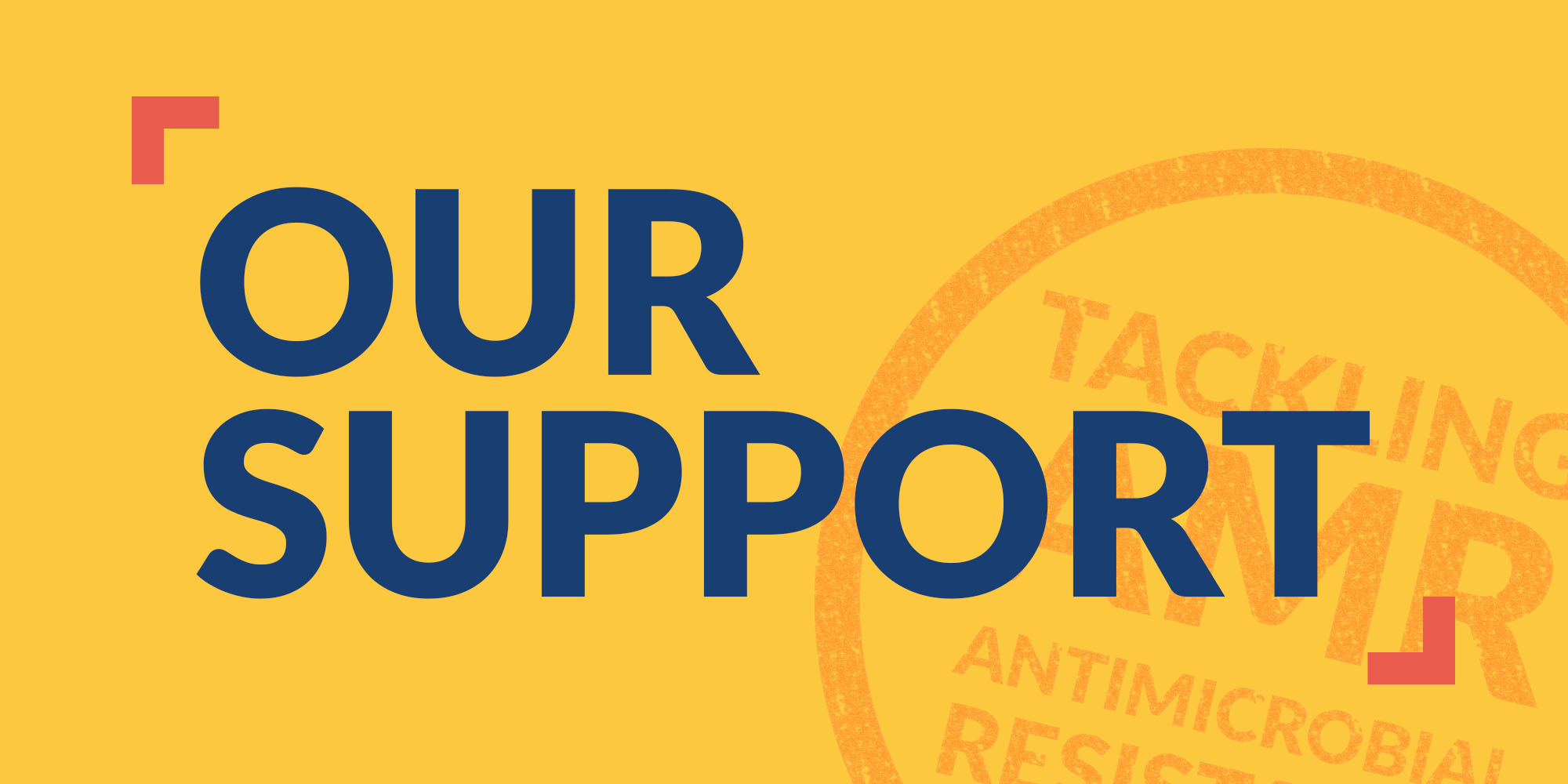Tackling Antimicrobial Resistance


Quick Links
Summary
Antimicrobial resistance (AMR) is one of the biggest global health threats we face. AMR infections are estimated to cause 700,000 deaths each year globally.
Our Tackling AMR campaign highlights the role research has to play in combating the AMR threat and how the NIHR can support researchers, life science industry and other key players to tackle antimicrobial resistance.
The facts

Resistance to commonly prescribed antibiotics is one of the biggest global threats we face.
AMR infections are estimated to cause 700,000 deaths each year globally. It is predicted to rise to 10 million by 2050 if we do nothing.
Antimicrobial resistance occurs when bacteria, viruses, fungi and parasites no longer respond to the drugs used to treat the infections they cause. No new classes of antibiotic have been discovered since the 1980 and the excessive and inappropriate use of the antibiotics we have is on the rise.
The UK government’s aim is to contain and control antimicrobial resistance by 2040. This depends on research. The NIHR has a crucial role to play in tackling antimicrobial resistance.
The expert view
There is no silver bullet when it comes tackling the threat of antimicrobial resistance but it's clear we need to be smarter with our treatment. This is where research comes in. Our experts explain:
- A cornerstone of modern medicine is crumbling by Dr Jane Minton
- Overcoming antimicrobial resistance by Prof Martin Llewelyn
- We need a smarter approach to tackling AMR by Prof Jonathan Ross
- The AMR fight is one we must win by Dr Andy Ustianowski
Our research

Antimicrobial resistance is a major threat to healthcare but new antibiotics are not the only solution. Giving antibiotics promptly can save lives but giving antibiotics to people who don't need them leads to overuse of antibiotics and antimicrobial resistance.
The NIHR supports important research looking at better ways of using antibiotics. Antibiotic stewardship, vaccines and new diagnostics all have a role to play.
More research into new diagnostics, for example, could help establish more quickly whether antibiotics are needed at all, while better management of resistant infections can help prevent infection in the first place and therefore need for treatment.
- Gonorrhoea: Can we recycle older antibiotics?
- Sepsis: How long should we treat sepsis with antibiotics
- STIs: Diagnosing faster to reduce transmission
- Antibiotic use in hospitals: New strategies to curb overuse
- How traditional urine collection methods are fuelling AMR
What we offer

NIHR is at the vanguard of clinical research in the UK. We provide a range of support to life sciences industry, charities and other funders looking to conduct AMR research in the UK.
- Researchers and life sciences companies can access help for planning, set up and delivery of high quality research to time and target, in both the NHS and in the wider health and social care environment, through Our Study Support Service. Email supportmystudy@nihr.ac.uk or call 0113 343 4555.
- Funding for studies in antimicrobial resistance is available from a number of our funding programmes and our Research Support Service can provide advice and support for applications.
- Our Health Protection Research Units (HPRUs) are research partnerships between universities and Public Health England (PHE) that act as centres of excellence in multidisciplinary health protection research in England. There are HPRUs in Healthcare Associated Infections and Antimicrobial Resistance at Imperial College London and University of Oxford.
